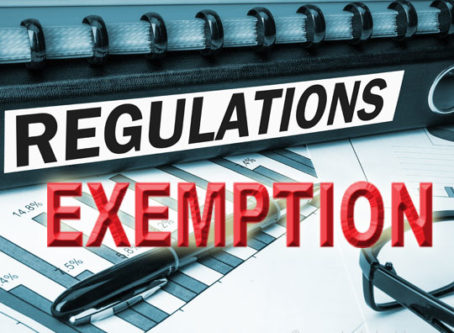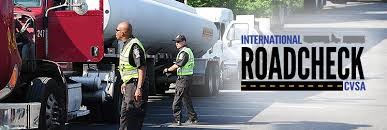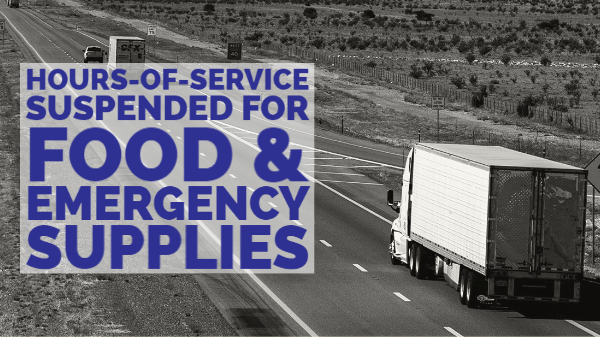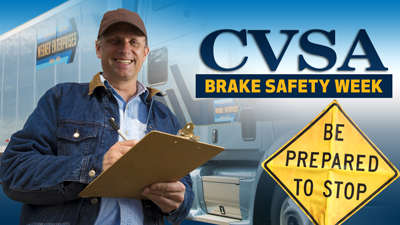Is Your Fleet Prepared for the Changes to the FMCSA INTERstate Hours of Service Regulations Next Month?

On Sept 29, 2020, the following four changes to the FMCSA hour of service regulations will go into effect as published in the June 1, 2020 Federal Register. There will be four significant changes to the regulations. As a motor carrier you will want to be prepared for these changes in advance. These changes will provide additional flexibility to your drivers and to you the motor carrier.
- Contact your Electronic Logging Device (ELD) provider to make sure that reprogramming of ELD’s are addressed in your system.
- Train your drivers on how the changes will impact their operation and that of the ELD if any.
- Train dispatchers and management personnel on the changes.
The new rules will include four significant changes for interstate truck and bus drivers:
- Revisions to the 30-minute break rule for truck drivers so they can remain “on duty” for their breaks and not have to take a break until completing eight hours of driving time, rather than consecutive time.
- Revisions to the 100-air-mile short-haul exception to lengthen the maximum on-duty period from 12 to 14 hours and extend the distance limit within which the driver may operate from 100 air miles to 150 air miles.
- Revisions to the sleeper-berth provisions to allow truck drivers to split their required 10 hours off into two periods, one being at least 7 hours in a sleeper berth and the other being at least 2 hours off (e.g., a 7/3 or 8/2 split). In addition, neither rest period will count against the driver’s 14-hour driving window.
- Changes to the “adverse driving conditions” exception to extend by two hours the maximum window of time during which driving is allowed after a driver encounters unexpected weather or traffic conditions.
Keep in mind that these regulation changes are for FMCSA INTERstate compliant carriers only! For INTRAstate operations, the states will have to consider adopting the regulation changes!
CVSA Sets Dates for Rescheduled Roadcheck

The Commercial Vehicle Safety Alliance (CVSA) rescheduled its International Roadcheck for September 9-11.
The annual event was postponed in March until further notice due to the COVID-19 pandemic. It was originally slated for early May.
The three-day enforcement campaign will result in a high volume of roadside inspections throughout North America. Law enforcement will perform driver and commercial motor vehicle inspections at weigh or inspection sites and fixed locations and through roving mobile patrols. Officers will check for compliance with motor carrier safety regulations, and those vehicles or drivers found with a critical inspection violation will be placed out of service.
Each year, CVSA’s event emphasizes a specific area of safety compliance. This year’ focus is on the driver requirements component of a roadside inspection. Areas include:
- Driver’s age
- Driver’s licensing requirements
- Driver physical qualifications
- Sickness or fatigue
- Alcohol, drugs, and other substances
- Driver’s record of duty status (U.S., Canada, or Mexico)
For more information on International Roadcheck, visit www.roadcheck.org.
FMCSA’s Emergency Exemption Extended (Again)

An emergency exemption for truck drivers assisting with the COVID-19 pandemic relief efforts has again been extended for another month.
The exemption was first issued on March 13, 2020, and has been revised and extended multiple times with the most recent extension due to expire on August 14, 2020. An enforcement notice posted on August 11 extends the emergency exemption through September 14, 2020.
This latest extension contains many of the same restrictions and conditions as before. However, the most recent declaration adds back in food, paper products, and other groceries for emergency restocking of distribution centers or stores , due to current conditions.
Who qualifies?
The revised exemption is limited to the transportation of:
- Livestock and livestock feed;
- Medical supplies and equipment related to the testing, diagnosis, and treatment of COVID-19;
- Supplies and equipment necessary for community safety, sanitation, and prevention of community transmission of COVID-19, such as masks, gloves, hand sanitizer, soap, and disinfectants; and
- Food, paper products, and other groceries for emergency restocking of distribution centers or stores.
Under the emergency declaration, eligible motor carriers and drivers providing direct assistance in support of relief efforts related to the COVID-19 outbreak are not required to comply with Parts 390 through 399 of the Federal Motor Carrier Safety Regulations. This includes rules covering hours of service, vehicle inspections, and driver qualification, among others.
Brake Safety Week Aug. 23rd through Aug. 29th
Brake Safety Week, slated for late August, will proceed as scheduled, according to the Commercial Vehicle Safety Alliance (CVSA).
CVSA's annual event will take place August 23rd through 29th as a part of law enforcement's efforts to reduce brake-related crashes and remove unsafe commercial motor vehicles (CMVs) from the roadways.
How is this different than any other time of the year?
Throughout the year, law enforcement checks brake components as a part of the roadside inspection process. However, during this year's enforcement campaign, roadside inspectors will pay special attention to hoses and tubing. Brake Safety Week 2020 will be used to highlight the importance of these brake components.
The week-long event is a part of the greater Brake Safety Awareness Month. During August, law enforcement will provide outreach materials to drivers, motor carriers, mechanics, and others on the importance of properly maintained brakes.

Importance of brake safety
A CMV’s brake components must work together to slow and stop a vehicle. If the brake hoses/tubing are not working properly, it can affect the entire braking system and create a safety issue.
To function properly, hoses and tubing must be:
- Properly attached
- Without damage and leaks
- Flexible
When roadside inspectors identify critical out-of-service brake violations, the vehicle cannot be operated until the defects are repaired. During last year's Brake Safety Week, officers placed 13.5 percent of the CMVs they inspected out of service due to brake-related vehicle violations.
Vehicles that pass the vehicle portion of an eligible roadside inspection may receive a CVSA decal.
Idealease Safety Webinar Series Registration is Now OPEN!
Due to the cancellation of our on-site safety seminars in 2020 we will be presenting a safety webinar series starting next month to keep you informed and up to date on changing regulations as well as a review of existing regulations. We apologize for any inconvenience this may have caused, but we are thrilled to host the Idealease Safety Webinar Series in their place.
The webinars will be one hour in length and will address six separate topics regarding compliance and safety.

Please Click Here to register for the Idealease Safety Webinar Series.
Here are the dates and webinar topics:
- Aug 26th Qualifying a driver of a commercial motor vehicle
- Sept 9th Keeping your driver safe during a pandemic
- Sept 23rd New hours of service regulation changes and the ELD
- Oct 7th How the Drug and Alcohol Testing regulations apply to you a motor carrier
- Oct 21st Developing a proactive safety and loss control program






